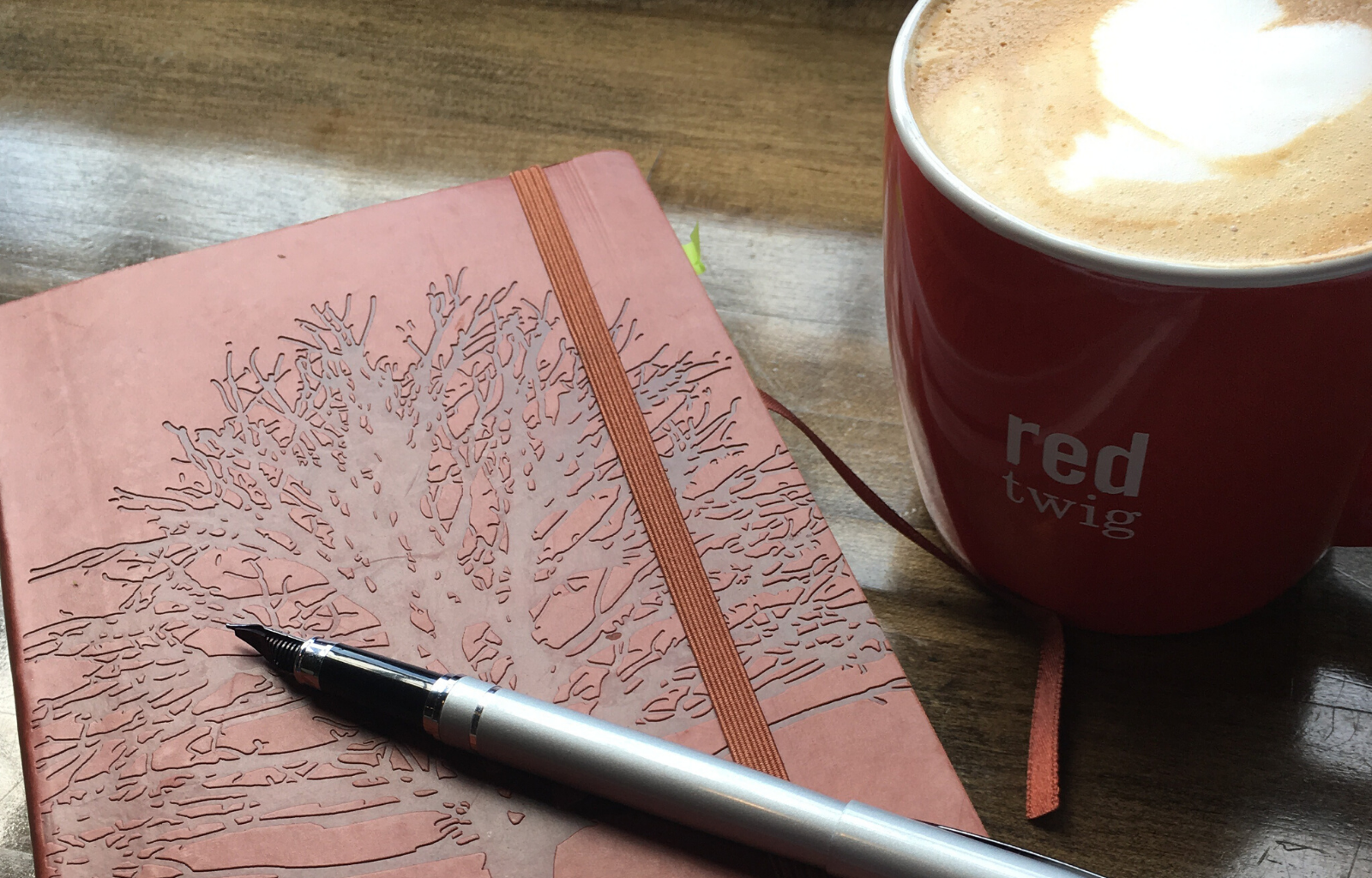 Christmas Eve–cards are sent, gifts are wrapped (mostly), and the holiday dinner shopping is underway.
Christmas Eve–cards are sent, gifts are wrapped (mostly), and the holiday dinner shopping is underway.
After my visit to Chartres in June, I’ve been challenging myself to write down three things each day for which I’m thankful. This practice found its way into my mystery novel when the protagonist shared her gratitude practice and then started thinking of Instagram photos as a visual gratitude journal. (Something I now do, too. Funny how writing about it brought the whole idea to consciousness.)
Recently someone suggested that I write down 20 things to be thankful for. It took the practice to a whole new level.
The advice contained three additional suggestions:
- be grateful for what delights you
- be grateful for what seems not-so-delightful (or downright horrible)
- be grateful for what’s coming
Writing down the not-so stuff makes me see it in a new light, and reminds me that even the crappy stuff in our lives often comes bearing gifts. In fact, it always does, if we are paying attention: the hardest lessons, if we stick with them, teach us the most.
This ties in with a little assignment I gave to writing lab members way back in September, to write a poem of praise. I wrote the poem in November while at a writing retreat, and I had every intention of finishing it and mailing a copy with my holiday cards. But it takes as long as it takes.
At a reading I mistakenly attributed the form or inspiration for my poem as “Skunk Hour” by Elizabeth Bishop, but of course “Skunk Hour” is Robert Lowell’s poem, which is famous. But what many people don’t know is that he was inspired to write it after reading Bishop’s “The Armadillo,” which is the poem I meant to refer to.
The Pear Tree
for Francine Walls
It’s late fall now, and we gather at Glen Cove
to write. This morning we watched
four grebes float across rain-pocked water,
watched as one dropped from sight,
then another, then all, and all popping up again
in comic succession, lifting small white wings
and throwing back their heads as if to crow.
What draws us beneath the surface of our lives,
if not minnow or eelgrass, insight
braided, strong enough to pull us deeper?
Once in a cathedral I stood in front of a statue
of the Madonna and child, said to be carved
from a single pear tree. The sculptor
had tilted Mary’s face downward, so that she gazed
at Jesus, a toddler crowing on her lap.
Outside the window, this morning,
the rain has stopped, though when I look,
the grebes are still there, each resting
on its own reflection. Before that pear tree
was chosen, it must have grown a long time
in someone’s garden. Someone walked there,
breathing the scent of blossoms, talking of love.
Someone picked and ate a pear,
the ripe flesh spreading like honey
across her tongue. O taste and see,
as we read in the Psalms, what is holy waits,
eager to delight our every moment.
And I’m grateful for you. In 2020, I hope you write!
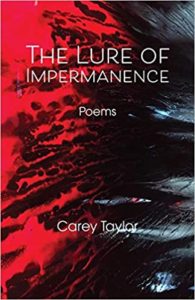 THE LURE OF IMPERMANENCE, Carey Taylor, Cirque Press, 3978 Defiance Street, Anchorage, AK 99504, 2018, 73 pages, $15 paper, https://cirquejournal.com/
THE LURE OF IMPERMANENCE, Carey Taylor, Cirque Press, 3978 Defiance Street, Anchorage, AK 99504, 2018, 73 pages, $15 paper, https://cirquejournal.com/
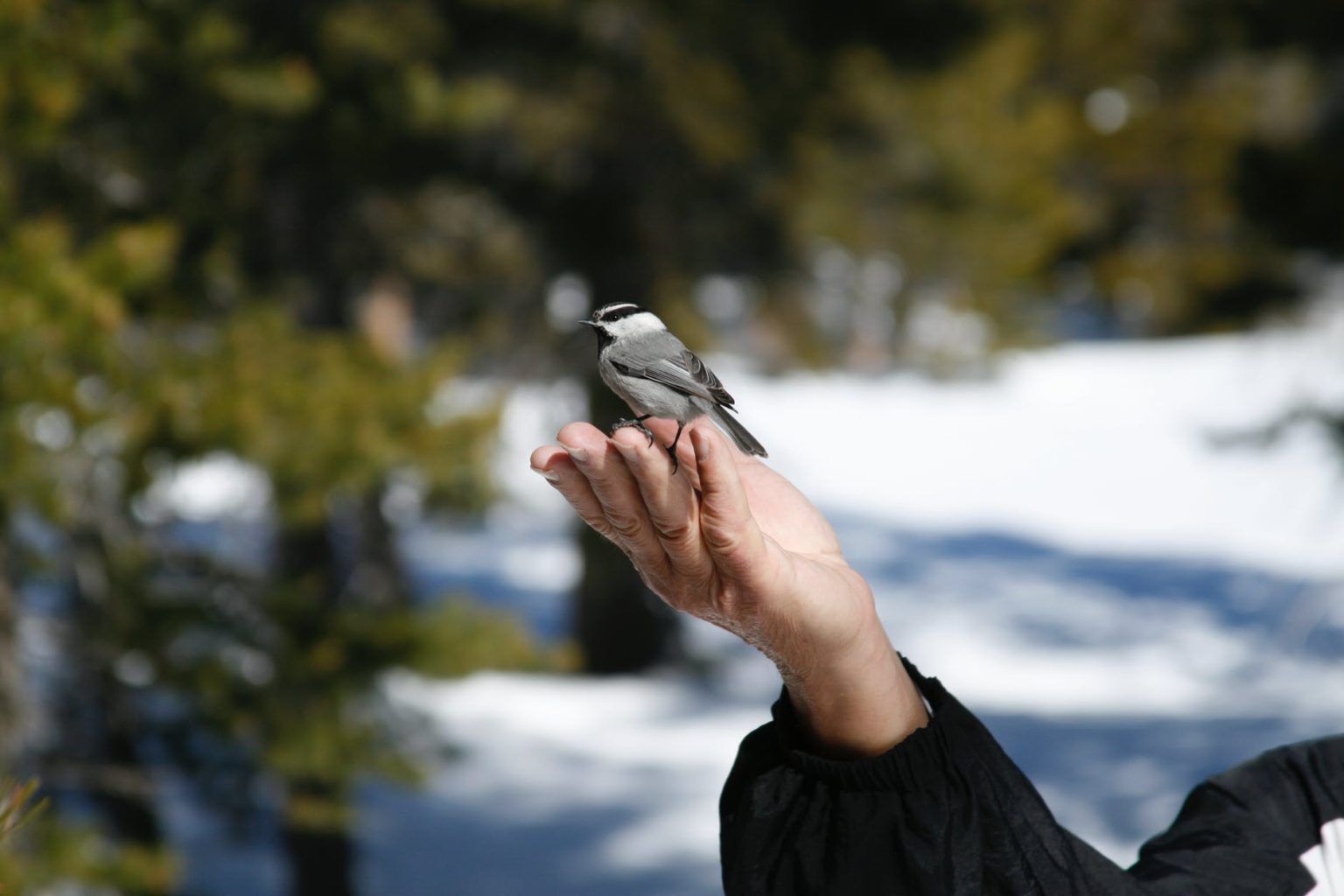

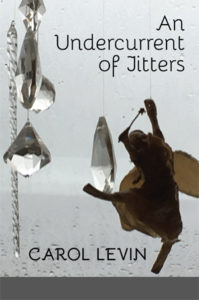 AN UNDERCURRENT OF JITTERS, Carol Levin. Moon Path Press, P.O. Box 445, Tillamook, OR 97141, 2018, 96 pages, $15 paper,
AN UNDERCURRENT OF JITTERS, Carol Levin. Moon Path Press, P.O. Box 445, Tillamook, OR 97141, 2018, 96 pages, $15 paper, 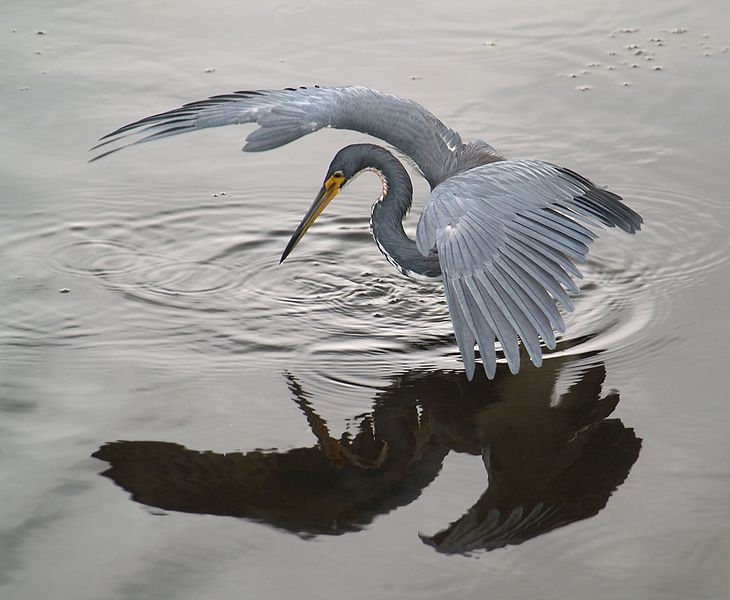
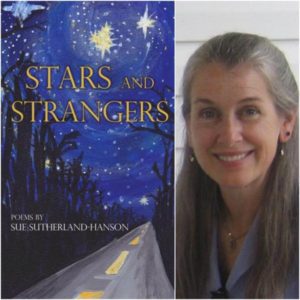 Because it is National Poetry Month and I have a goal of writing a poem a day, I’m also reading a lot of poetry.
Because it is National Poetry Month and I have a goal of writing a poem a day, I’m also reading a lot of poetry.